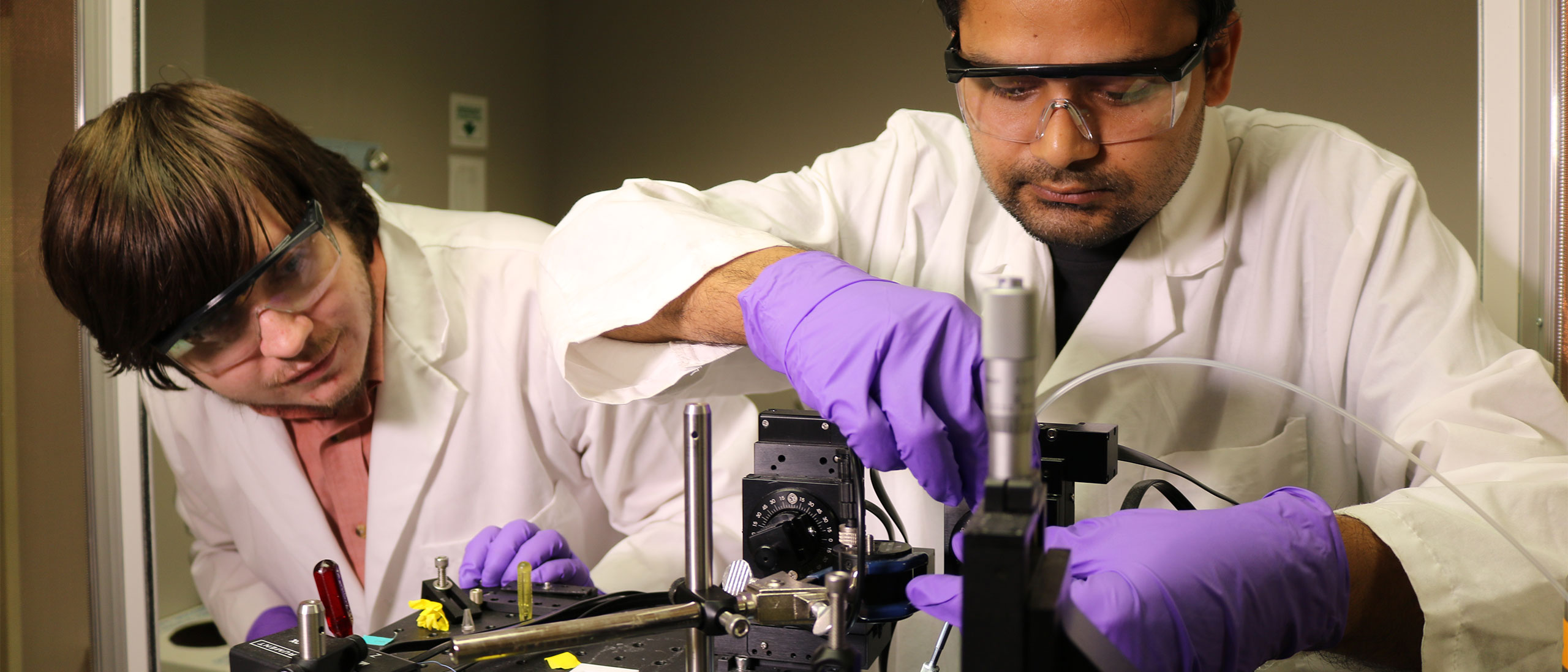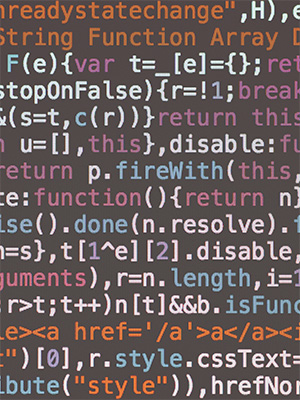
Student Research
Discovery. Innovation. Commitment. What does research mean to you?
For our students, research is all of those things and more. Research means probing the unknown and following the thread of curiosity. It means hitting dead-ends and discovering new paths. It means developing deep relationships with scholars and mastering new technology. No matter your chosen field of study, all students benefit from the skills gained during the research process.
Student Research Highlight: Vertically Integrated Projects
Vertically Integrated Projects provide undergraduate students the opportunity to participate in course-based, multiyear, multidisciplinary, team-based projects under the guidance of faculty and graduate students.
VIP teams always welcome enthusiastic students who want to learn and do new things. Interested students are strongly encouraged to contact the team advisers of all the teams they are interested in.
PIs: Jason Arnold, Ph.D., and Milos Manic, Ph.D. Research: The AI Governance VIP is a multidisciplinary group of researchers who will investigate the social, political, and economic implications of artificial intelligence (AI), develop governance frameworks to ensure beneficial AI, and create technologies to empower democratic citizens during and after the transition to transformational AI. The team of faculty and students will publish papers and create technology products, with an initial focus on: machine-enabled deception and deception detection; policy approaches in the US, EU, and China; government transparency and accountability; populist-led backlashes; public opinion, participation, and policymaking; as well as AI governance issues more generally. PIs: Gabriela Leon-Perez, Ph.D., and Daniel Morales, Ph.D. Research: This project seeks to further the archival history of Latinos in Virginia by documenting their migration and integration experiences in a state that has historically been defined by white-Black relations. Specifically, the Latino Virginia Project will collect oral history interviews with Latino residents of Virginia to chronicle their migration history, successes, challenges, and contributions. Oral histories provide a fantastic opportunity to document recent immigration into the state, gathering rich stories of members of society who are usually left out of the historical record. PIs: Christine Cynn, Ph.D.; Susan Bodnar-Deren, Ph.D.; Mary Boyes; Nancy Jallo, Ph.D.; Maggie Goddard, Ph.D.; Daniel Sunshine, Ph.D. and Michael Dickinson, Ph.D. Research: For this project, the Humanities Research Center’s Health Humanities Lab proposes to build on existing collaborations between the Lab, the VCU Office of Health Equity’s History and Health program, and the Honors College and expand them to encompass the East Marshall Street Well Project, the VCU School of Nursing, and Birth in Color RVA. With support from the Office of Health Equity and the Honors College, from 2022–23, the Health Humanities Lab awarded eight fellowships (7 undergraduate, 1 graduate) to enable students to participate in lab activities, create educational modules on topics related to health equity, obtain mentorship, and present their research at conferences. One group of the students worked on equity issues related to clinical trials, the other on mental health, and each group facilitated a recorded panel with community members, clinicians, and humanities researchers that will be uploaded onto the module. PIs: Frankie Mastrangelo, Ph.D.; Gina Longo, Ph.D.; Jesse Goldstein, Ph.D.; Susan Bodnar-Deren, Ph.D. and Megan Gough, Ph.D. Research: This project reflects a department wide effort to transform Sociology into a hub of transdisciplinary, vertically-integrated research at VCU. We are building upon a network of already established student-engaged research labs and projects that provide opportunities for students to gain impactful experience - in terms of research, organizing and professional development - through hands-on participation and mentorship. Between the four sociology and one urban studies faculty centrally involved, we are proposing three distinct VIP labs: 1) Billion Worlds Lab (also connected to the Environmental Humanities Lab @ HRC) is dedicated to social justice oriented scholarship 8-10 students each year; 2) Digital Sociology Lab is dedicated to producing and disseminating rigorous research on the digital to inform policies, programs, and theories that will combat digital divides, digital inequalities, and their effects in the Richmond-area, the state of Virginia, and the broader global community. (Mastrangelo, Longo) 3-6 students each year; 3) Reparative Land Justice Initiative is a community-led participatory research project that explores and supports Black Food Sovereignty networks in Richmond, Va. (Bodnar-Deren, Gough, Goldstein) 3-6 students each year. PIs: Sarah Jane Brubaker, Ph.D., and Jessica Trisko Darden, Ph.D. Research: Through this project, students will analyze the social, legal, and political challenges children who participate in violence face in justice systems and in reintegrating into society, in the United States and in other countries. As youths studying youths, VCU students will be empowered with knowledge and skills to pursue careers in a variety of fields including: Law; Public Service; Community/Non-Profit Organizations; Criminal Justice; Advocacy; and Data Analysis. We expect between 5 and 15 unique undergraduate students and 2 to 3 graduate students to participate in the VIP over the two years of funding. Our VIP will teach students how to employ qualitative and quantitative analysis using multiple software and programming platforms including NVivo, Python, and R. 




Funding for your researchYou have the motivation, creative energy and ideas. We want to help you make it real with funding and scholarships. Learn more.